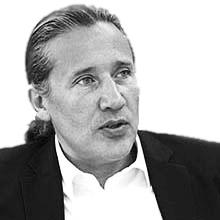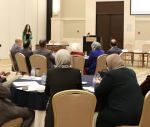You are here
‘Creating viable, sustainable livelihoods’
Aug 24,2016 - Last updated at Aug 24,2016
The recent World Humanitarian Summit, held on May 23-24, 2016, in Istanbul, as well as the Supporting Syrians and the Region Conference in London, of February 4, 2016, represented important milestones in the search for more sustainable responses to complex and protracted crisis.
Some of the conclusions and recommendations from these events had been anticipated at the Resilience Development Forum, organised under the patronage of the prime minister last November, and captured in the Dead Sea Resilience Agenda.
In a joint effort, the international community pledged to ease the region’s economic access to world market and to uphold its generous contributions, while the governments in the region offered to open up their labour markets in an attempt to create 1.1 million jobs by 2018.
The United Nations Development Programme, the World Food Programme and the International Labour Organisation, in close cooperation with the six countries most affected by the refugee crisis, have now undertaken a Regional Economic Opportunity Assessment (REOA) that identifies the challenges to employment creation, maps successful attempts at overcoming them and spells out concrete recommendations to local governments, donors, the private sector and the international community.
The assessment was conducted by national experts in each of the countries involved — Syria, Jordan, Lebanon, Iraq, Turkey and Egypt — in close consultation with various country partners and other international organisations.
Two regional experts and a leading labour economist led the research effort.
This week, its findings will be compiled by country and regionalised with the aim of facilitating cross-country fertilisation of knowledge and learning practices about viable approaches to create livelihoods and foster resilience.
The importance of host communities in this exercise cannot be understated.
We recognise the tremendous global public good that countries in the region provide.
His Majesty King Abdullah underlined this in an interview with the Jordan Times: “Our priority is to create jobs in governorates, especially refugee-hosting communities. Accordingly, 75 per cent of jobs in these industrial plants are designated for Jordanians.”
We welcome the proactive leadership that countries in the region have taken and through this work hope to provide support to national efforts to help both refugees and host communities stand on their own feet, forming the core of a resilient society.
In time for the United Nations Summit for Refugees and Migrants, on September 19, 2016, in New York, which will explore ways for a better international response to large movements of refugees and migrants, the REOA will provide regional findings.
It will focus on making labour markets more inclusive and attractive to segments of the work force that do not participate in them, on removing obstacles and lack of incentives to formalisation of work, and on concrete steps to make the region more attractive to much-needed investment and export demand.
The UN agencies support countries in the region to address the demographic shock and build social cohesion in all parts of the process, from humanitarian assistance and registration to the facilitation of skills exchanges and support for businesses of all sizes.
Supporting communities who host refugees and whose lives are impacted most immediately in creating viable and sustainable livelihoods for themselves and their families is core to strengthening resilience in this difficult time.
The key principle of these efforts is the building of national capacities to equip countries in the region to face similar shocks now and in the future on their own.
The writer is UNDP sub-regional development coordinator for the Syria crisis in Amman. He contributed this article to The Jordan Times.













